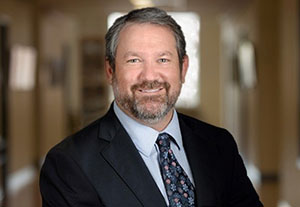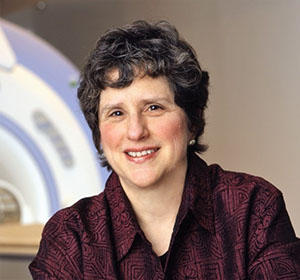Archived Content
The National Institute of Mental Health archives materials that are over 4 years old and no longer being updated. The content on this page is provided for historical reference purposes only and may not reflect current knowledge or information.
NIMH Director Joshua Gordon and IRP Researcher Ellen Leibenluft Elected to the National Academy of Medicine
• Institute Update
Joshua A. Gordon, M.D., Ph.D., director of the National Institute of Mental Health (NIMH), and Ellen Leibenluft, M.D., chief of the Section on Mood Dysregulation and Neuroscience and co-chief of the Emotion and Development Branch in the NIMH Intramural Research Programs, have been elected as members of the National Academy of Medicine . Election to the Academy recognizes outstanding professional achievement and commitment to service and is one of the highest honors in the fields of health and medicine.
“Dr. Leibenluft and I are honored to be elected as National Academy of Medicine members,” Dr. Gordon said. “We look forward to helping further their vision of providing a healthier future for all through the advancement of science.”
The National Academy of Medicine, founded in 1970, is one of the three academies that comprise the National Academies of Sciences, Engineering, and Medicine. The Academy aims to improve health for all by advancing science and health equity and by serving as a catalyst for action addressing health topics. The Academy also provides independent, evidence-based scientific advice to the U.S. Government and others with the goal of advancing health worldwide.

Dr. Gordon has been the Director of the NIMH since 2016. After receiving a combined M.D.-Ph.D. degree from the University of California, San Francisco, Dr. Gordon completed a psychiatry residency and research fellowship at Columbia University. In 2004, he became a member of the Columbia faculty, serving as an assistant professor in the Department of Psychiatry. Dr. Gordon also served as an associate director of the Columbia University/New York State Psychiatric Institute Adult Psychiatry Residency Program and maintained a general psychiatric practice.
Dr. Gordon’s research focuses on the analysis of neural activity in mice carrying mutations of relevance to mental illnesses. He studies genetic models of these diseases from an integrative neuroscience perspective, focused on understanding how a given disease mutation leads to a behavioral phenotype across multiple levels of analysis. To this end, he employs a range of systems neuroscience techniques, including in vivo imaging, behavioral recordings, and optogenetics, which is the use of light to control neural activity. His research has direct relevance to schizophrenia, anxiety disorders, and depression.

Dr. Leibenluft received her M.D. from Stanford University. After completing her residency training at Georgetown University Hospital, she served on the faculty there as director of the psychiatric inpatient unit and day hospital.
Dr. Leibenluft came to the NIMH in 1989. Her research first focused on addressing questions regarding the appropriate criteria for diagnosing bipolar disorder in youth, identifying chronic irritability in children as distinct from pediatric bipolar disorder. Currently, her primary research focus involves using a systems neuroscience approach to elucidate the dysfunctional brain circuitry mediating irritability in children and adolescents. This work can then inform the development of novel mechanism-based treatments for impairing irritability in youth.
In addition to Drs. Gordon and Leibenluft, several NIMH grantees were also elected. For a full list, please visit https://nam.edu/national-academy-of-medicine-elects-85-new-members/ .
To learn more about Dr. Joshua Gordon, please visit NIMH’s about the director page. To learn more about Dr. Ellen Leibenluft, please visit her NIMH Principal Investigator page.